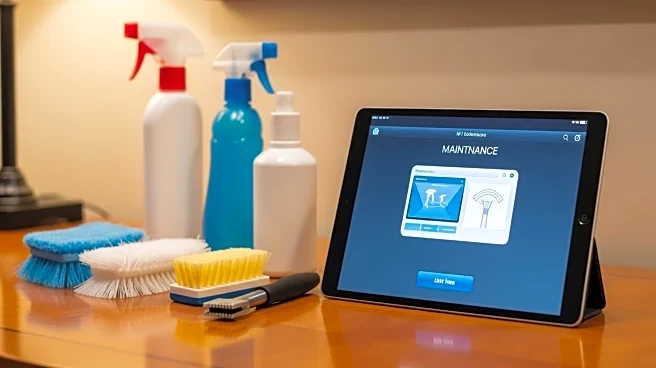What's Happening?
The hospitality industry is increasingly adopting online training tools to boost productivity among maintenance and housekeeping teams. These tools, integrated into Learning Management Systems (LMS), streamline onboarding processes, enhance communication, and ensure consistent training across departments. By providing self-guided training modules, hotels can quickly equip new hires with the necessary skills, reducing downtime and improving efficiency. The flexibility of online training allows employees to learn at their own pace, access resources from any device, and receive role-specific guidance. This approach is particularly beneficial for properties with high turnover rates or seasonal workers, as it minimizes the burden on managers and fosters a supportive work environment.
Why It's Important?
The implementation of online training tools in hotels addresses several challenges faced by the industry, including high turnover rates and language barriers. By offering accessible and consistent training, hotels can improve employee retention, job satisfaction, and overall productivity. This technological advancement is crucial for maintaining brand consistency and delivering seamless guest experiences. As the hospitality industry competes for talent, providing comprehensive training programs can differentiate hotels in the labor market, attracting workers seeking long-term opportunities. The use of gamification in training further enhances engagement, making learning interactive and enjoyable, which can lead to higher completion rates and improved morale.
What's Next?
As hotels continue to integrate online training tools, there may be an increased focus on developing more advanced and tailored training programs. This could involve partnerships with technology providers to create customized solutions that address specific operational needs. Additionally, hotels may explore expanding their training offerings to include leadership development and cross-departmental collaboration, fostering a culture of continuous improvement. The success of these initiatives could prompt other industries to adopt similar training models, recognizing the benefits of digital learning platforms in enhancing workforce capabilities.
Beyond the Headlines
The adoption of online training tools in hotels reflects a broader trend towards digital transformation in the workplace. This shift not only improves operational efficiency but also aligns with the expectations of a tech-savvy workforce. As employees become more accustomed to digital learning environments, there may be a growing demand for personalized and interactive training experiences. The emphasis on employee development and support also highlights the importance of creating a positive work culture, which can lead to increased loyalty and reduced turnover. By investing in training, hotels demonstrate a commitment to employee success and well-being, which can enhance their reputation and competitiveness in the industry.








